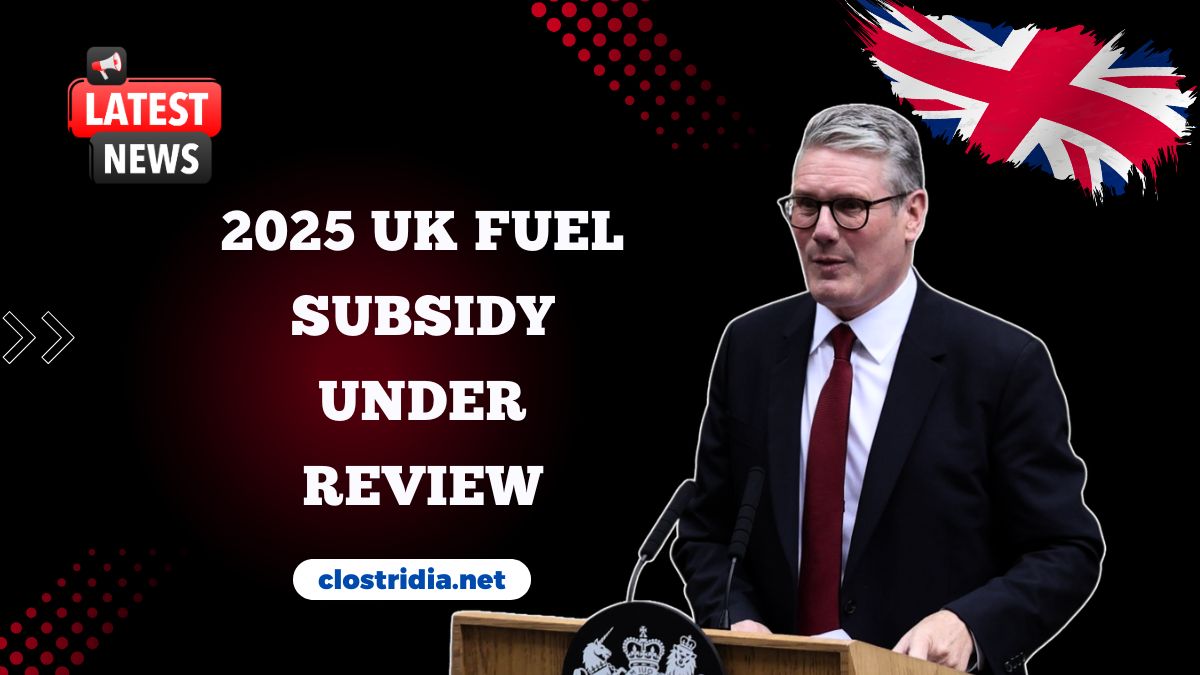As petrol prices in the UK continue to rise sharply in mid-2025, the government is actively considering a fuel subsidy proposal to ease the burden on consumers and businesses.
The UK Fuel Subsidy Proposal 2025 is being explored by the Treasury and Department for Transport, offering several options to reduce the impact of escalating fuel costs.
With inflation and global oil price volatility affecting transport and supply chains, ministers are weighing short-term relief through fuel duty reductions, direct pump subsidies, or targeted support vouchers.
Why Petrol Prices Are So High in 2025
Fuel prices in the UK have surged over 12% in the last six months, primarily due to:
- Global supply disruptions
- A weaker British pound increasing import costs
- Ongoing geopolitical instability affecting crude oil markets
These factors have placed immense pressure on commuters, delivery services, and rural households, many of whom rely on vehicles for essential daily needs. Transport now ranks among the top three monthly expenses for average UK families.
Key Fuel Subsidy Options Under Review
The government is reviewing multiple financial models to ease the pressure at the pump. These are currently the most viable options being considered:
Breakdown of Potential UK Fuel Relief Measures
| Option | Description | Potential Impact |
|---|---|---|
| Fuel Duty Cut | Temporary reduction in per-litre tax | Immediate price drop at the pump |
| Direct Subsidy | Gov’t covers portion of fuel cost directly | Relief for all users; complex to implement |
| Targeted Vouchers | Discount for low-income households or key sectors | More focused aid; potential administrative delays |
| Windfall Tax Offset | Fund subsidies via additional taxes on oil giants | Popular strategy; may face pushback from energy firms |
Each option involves balancing fiscal responsibility with public demand, especially as national debt and budget deficits remain concerns.
Public Pressure and Political Ramifications
The public outcry over rising fuel prices has reached new highs. A recent YouGov poll showed 68% of UK residents support some form of petrol price intervention. With a general election anticipated in 2026, the current administration is under increasing pressure to deliver tangible relief.
Industry stakeholders like taxi associations, logistics companies, and farming unions have also joined the call, warning that rising fuel costs could destabilize supply chains and drive inflation in other sectors.
Environmental & Policy Considerations
While many support immediate fuel relief, climate advocates caution that petrol subsidies may conflict with the UK’s net-zero emissions target. Critics argue any subsidy should be short-term and paired with green incentives, such as:
- Boosts for electric vehicle (EV) adoption
- Investment in public transportation
- Support for alternative fuels and infrastructure
Government insiders suggest the plan, if approved, will include transitional strategies to avoid derailing environmental progress while still offering economic support.
What Comes Next?
As of July 2025, the proposal is still under review, but officials hint that announcements could be made by late summer if fiscal modeling proves feasible. Key priorities include:
- Avoiding wasteful spending or inequitable distribution
- Ensuring timely implementation before winter fuel demand spikes
- Maintaining a balanced approach between climate and economic needs
The UK Fuel Subsidy Proposal 2025 is emerging as a critical discussion point in Parliament. If approved, the policy could soften the blow of rising petrol prices and provide relief to millions of households and businesses.
However, the success of the program will depend on its design, funding, and alignment with long-term energy goals.
Motorists and industry groups should stay informed and prepare for potential changes by monitoring official updates and budget releases.
FAQs
What is the UK Fuel Subsidy Proposal 2025?
It’s a proposed government initiative to reduce fuel costs, potentially through fuel duty cuts, direct subsidies, or targeted discounts.
Why are petrol prices so high in 2025?
Rising global oil prices, a weaker pound, and supply disruptions have led to a 12% spike in UK fuel prices since early 2025.
Who will benefit from the fuel subsidy if implemented?
The proposal could benefit motorists, transport companies, and low-income households, depending on which relief option is chosen.

